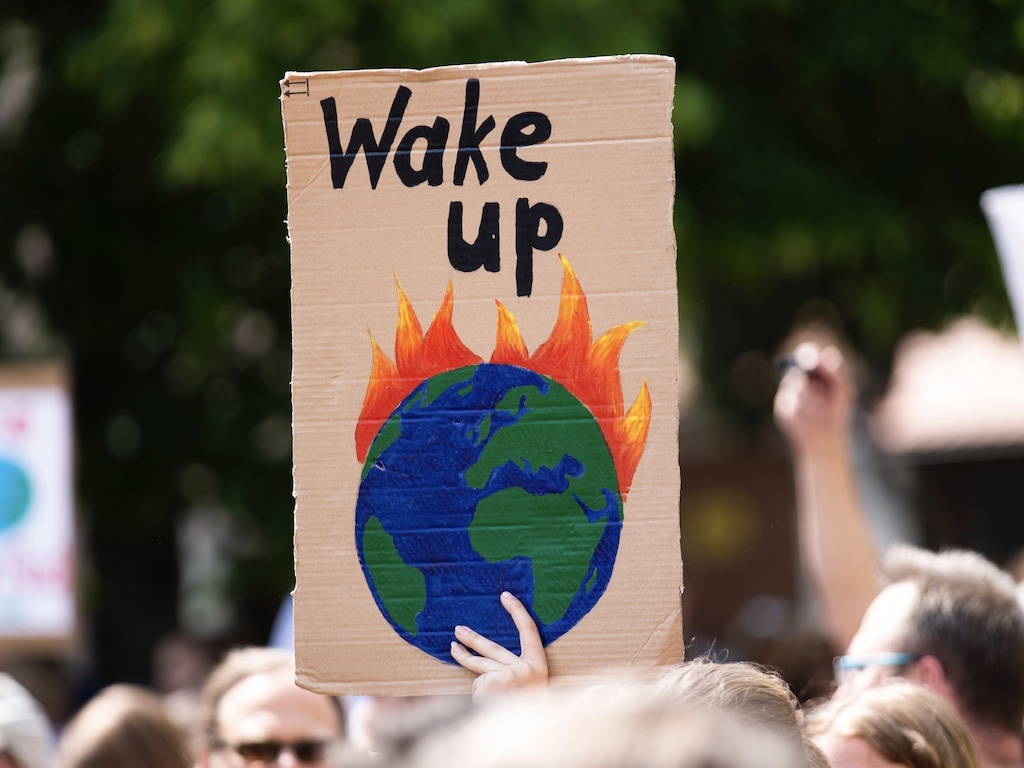4 Mins Read
We are currently facing a climate crisis that we cannot seem to imagine any way out of.
The climate change we are experiencing is accelerating at unnatural levels, and some experts believe it’s disproportionately impacting communities of color and the countries in the Global South. Due to the scale of climate change and the grip that the fossil fuel industry still has over our global economic system, it may seem as though the actions we can take to slow or reverse the degradation of the environment are beyond us. Small steps like trying to save tap water by turning off the faucet while we brush our teeth and buying reusable bags can seem utterly inadequate when staring down the depths of this crisis. And they are. Personal choices we make like eating less red meat do help, so keep making them. But we need to look past trying to slow down the environmental effects of climate change with “green” solutions and instead push ourselves and our communities to target the forces exacerbating our climate emergency. It is imperative that we understand this crisis is going to require larger systemic change as well as critical change within ourselves.
So, what systems are currently harming the environment?
Global capitalism is a system that relies on human labor to produce mass goods on behalf of private and public corporations. It is a system that can lead to the exploitation of humans and the land. Historically, capitalism has worked hand in hand with colonialism to exploit the natural resources, agricultural bounty, and cheaper labor of economically disadvantaged countries for the benefit of the wealthier countries of the Global North. Many fossil fuel and mining companies rely on a profit-now-worry-later mindset, using harmful, unsustainable means of extracting raw materials from the land.
When we do harm to nature, we are doing harm to ourselves. Environmental racism is a very real, pervasive, and violent mechanism used to oppress communities of color and the Global South. The fast-fashion industry, for example, uses cheap factory labor often sourced in South Asia, and can subject employees to poor working conditions while also wreaking havoc on the environment. In Indigenous communities across the Americas like mine that decline to extract natural resources from their ancestral lands, major corporations come in to do so, often displacing them and damaging the ecosystems on which they rely.
In America, environmental racism is rampant and can be seen in both rural and urban communities. In Chicago, historical segregation has left Black and Hispanic communities on the South Side and West Side suffering from higher levels of industrial toxins and pollution. A similar story has played out in North Carolina, where toxic waste from oil and agricultural industries have polluted and dumped wastes in landfills near low-income minority communities.
Large multinational corporations also bear responsibility for what’s known as “greenwashing,” or diverting some corporate funds towards sustainability initiatives and marketing to take the focus off of other environmentally questionable practices. Many of these companies also enthusiastically sell “eco-friendly” bags and other “green” items that some research has suggested may not be as environmentally beneficial as originally thought. As all of this evidence makes clear, buying somewhat more sustainable products won’t get us nearly far enough. This is why we must envision solutions that do not rely on capitalism.
Climate action being written off as an individual choice benefits this broken system
After identifying the causes of climate change and who it will harm the most, we can begin to come up with the kind of systemic solutions that are needed. Things like decarbonization, publicly owned utilities, and government-backed, large-scale green jobs programs. We can — and must — seek responses that acknowledge that climate change will be disproportionately felt by people of color, women, and immigrants; climate change is a social justice issue and must be treated as such.
We need to start organizing our communities around disrupting the capitalist and colonialist systems in which we’re all forced to operate. It will take thoughtful conversations, reflection, and bold action. Let us acknowledge the connection we share with each other and with nature; let us change the way we relate to the planet. We need environmental justice, as our fate and our futures are inextricably connected with the land.

This story was originally published in Teen Vogue and is republished here as part of Covering Climate Now, a global journalism collaboration strengthening coverage of the climate story.
Lead image courtesy of eachother.org.




